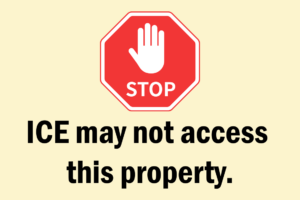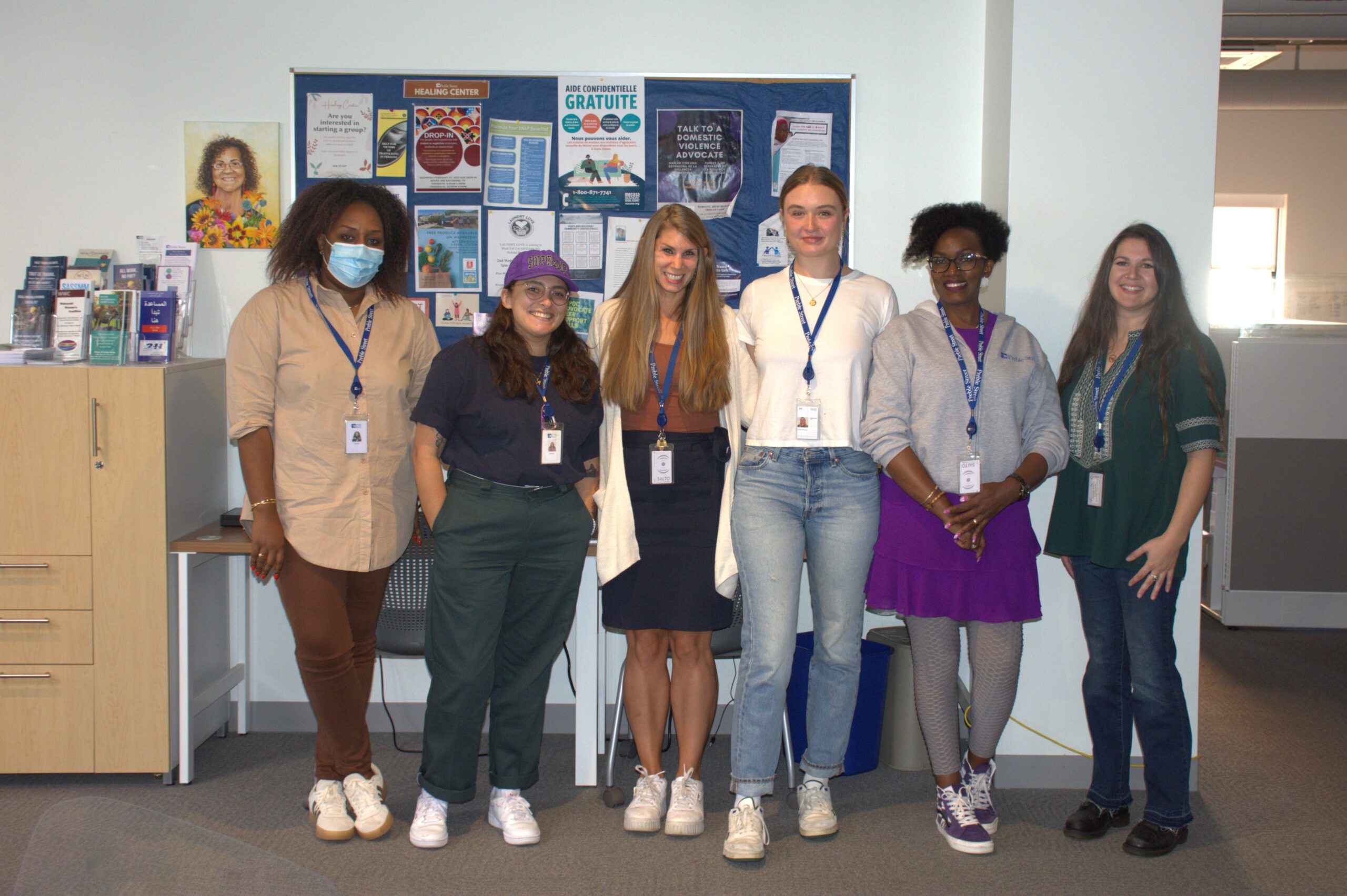Pictured: Most of the Preble Street ATS team, in front of a portrait of dee Clarke, a trafficking survivor who became an inspirational advocate
As of October 1, Preble Street Anti-Trafficking Services (ATS) and many other anti-trafficking program providers across the country will be left without a large part of their funding. Since launching in 2013, Preble Street ATS has relied on funding from the Department of Justice’s Office for Victims of Crime (OVC). The most recent three-year grant of $950,000 expires today, September 30 and these funds have allowed ATS to support 157 survivors from 7 counties in Maine.
Though OVC grant applications usually open in April, with funds dispersing on October 1, the federal government has not announced any intention of opening the grants this year.
“Over the last three years of this funding, our Anti-Trafficking program has borne witness to great love: families reunited locally and across borders, college degrees attained, survivors signing their first leases, and most importantly, the feeling of safety within their body & heart.” says Hailey Virusso, Director of Preble Street Anti-Trafficking Services. “Maine’s commitment to supporting survivors of trafficking must be prioritized and we will not stop advocating for solutions that keep all of our community members safe.“ See Hailey’s full statement here.
Over the years, ATS has provided rental assistance and relocation fees to help countless survivors exit their trafficking situations, and brought food, clothing, and other basic needs to sustain them along the way. They’ve connected survivors to mental and physical health services, legal assistance, and helped they reunify with their families. They’ve welcomed survivors to the Preble Street Healing Center (which opened four years ago this month!) where individuals have reclaimed some comfort, safety, and dignity. ATS caseworkers walk alongside survivors as they take back their lives.
A former ATS client recently spoke with the Press Herald about her journey. Read more here.
Not only does ATS provide trafficking survivors with intensive case management and help with basic needs, but they have also trained over 1,900 other individuals in Maine on how to best support survivors. From medical staff to homeless service providers, to law enforcement officers, the ATS team equips community members to support the dynamic and complex needs of trafficking survivors, meaning that the impacts of the OVC funding stretch far beyond the casework it supports.
Sadly, all of these critical services will be severely limited without continued OVC funding. As Hailey recently shared with Maine Public, “We know that every moment is the right moment, and if we don’t pick up the phone what that could mean for a survivor that they potentially couldn’t exit a situation, couldn’t get connected to life-saving support.”

Preble Street testimony in support of permanent, sustainable funding for Maine emergency shelters
Maine needs and deserves safe, accessible, professionally run, and sustainable emergency shelters that can meet the needs of the growing number of individuals and families experiencing homelessness in our state. On Tuesday, February 10, 2026, shelter executive directors and staff from across the state went to Augusta to advocate for a sustainable funding source that

Take Action: Tell Maine to provide permanent funding for emergency shelters!
Depending on where a person lives in our state, they may need to travel hours to the nearest shelter if they become homeless. There is no guarantee that when they arrive there will be a bed available. Right now, there are not enough shelter beds in Maine for the thousands of individuals and families experiencing

TAKE ACTION to Protect Maine’s Public Schools, Hospitals, Daycares, and Libraries from ICE
Tell your Maine legislators to support LD 2106! Increased presence of Immigration and Customs Enforcement (ICE) agents, as part of the dehumanizingly named ‘Operation Catch of the Day,’ is creating constant fear and anxiety for so many of our neighbors, leaving them scared to leave their homes, go to work, take their children to school, seek

